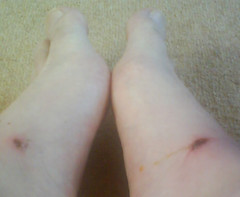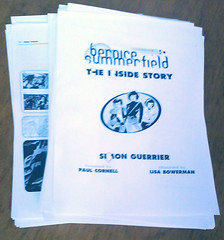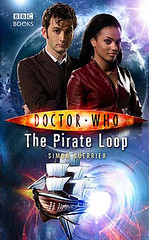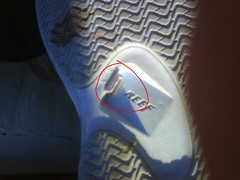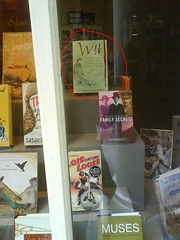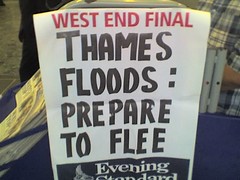So, while the second series of Rome comes to an end on the telly, we have just got to the end of the first lot on DVD. And find ourselves bothered that we’ve got a whole three weeks before we can see the next bit.
The Roman republic is falling on its arse, because of soldier called Julius Caesar. He insists he’s only being a tyrant to get Rome back on its feet. At the same time as all the politics, we follow two lowly Roman soldiers, Titus Pollo and Lucius Vorenus, as they struggle with everyday life.
I’d watched the first episode and bits of some more when it was on the telly, but it had failed to win me over. The writing seemed all gruff and joyless, the attention on the look of the thing. Sudden and shocking naked bits and violence were less titillating as excluding. And I was probably working at the time, and not paying due attention to the story.
Some learned colleagues explain that the first telly episodes had been edited - the BBC favouring less talky explaining in favour of more stabbing and bums. And I also think it’s a series you need to stick with to get into.
This is also true of I, Claudius, the BBC’s series from the 1970s which we watched some time ago. With that, I felt it didn’t really get going until Master No. Five Derek Jakobi was appearing in the flashbacks as well (the first episode or two just set the scene, and Claudius appears as a nipper). Once he’s commenting on stuff we watch him do himself, critiquing and juxtaposing the story, it all becomes much more absorbing.
I, Claudius also had a lot of sudden, shocking violence and nude bits – though a telly generation more tame. And it also worked hard to get through all the big history while also keeping in all the gossip. The Dr provided commentary on both that and Rome, explaining the various sources. I found I came to Rome with a bit more knowledge of my own, too, having studied both Asterix and Shakespeare.
 I noticed that the Gaulish leader Vercingeterox looks less like he does in the comic and much more like the mulletted Dying Gaul (the statue that’s the spitting image of nineteenth century classicist Adolf Furtwangler). And I’m sure that Caesar is meant to have been bald.
I noticed that the Gaulish leader Vercingeterox looks less like he does in the comic and much more like the mulletted Dying Gaul (the statue that’s the spitting image of nineteenth century classicist Adolf Furtwangler). And I’m sure that Caesar is meant to have been bald.The Dr was horrified by the look of Egypt, which would have Edward Said spinning in his sarcophagus. She liked the way that rumours were started – for example why there are accounts Julius did it with Augustus. We also marvelled at the scale and excitement, and the clever way it mixed the epic story of the city and empire with everyday people’s lives.
Still think it could have been funnier, though. And some of the dialogue clanked.
Also, I can’t quite reconcile myself to the fact that Max Pirkis is playing the young Brian Blessed.


